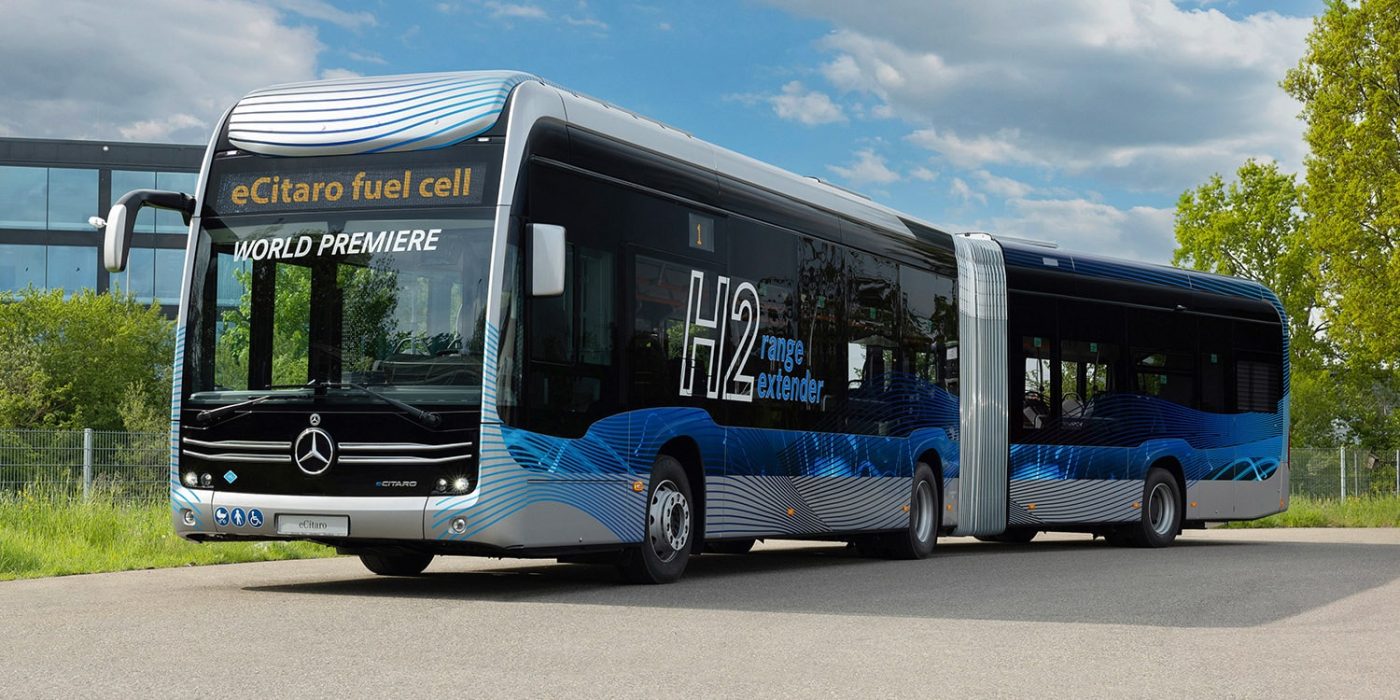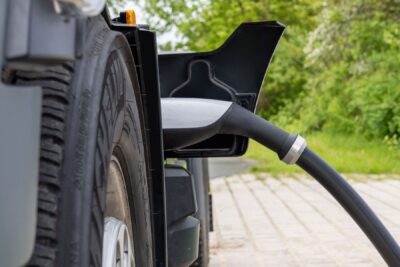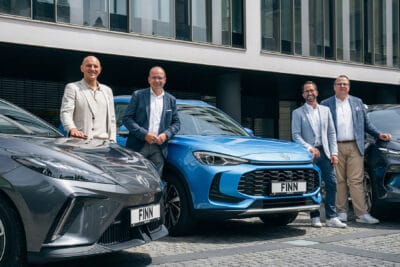Drum roll for Mercedes eCitaro with FC range extender
Daimler Buses announced the imminent series launch of the Mercedes-Benz eCitaro fuel cell. The manufacturer’s first series-production electric bus with a fuel cell as range extender will be presented at the Global Public Transport Summit (GPTS) from 4 to 7 June 2023 in Barcelona.
Daimler Buses is already providing the first key data on the drive system ahead of the world premiere. The eCitaro fuel cell will combine Mercedes-Benz’s third-generation lithium-ion batteries called “NMC-3” with a fuel cell range extender. As a solo bus, the model will have a choice of two or three battery packs (one on the roof, two in the former engine compartment) with a combined capacity of 192 or 294 kWh. As an articulated bus, there are three or four packs (three on the front of the vehicle, one in the former engine compartment) with a cumulative capacity of up to 392 kWh. In both cases, the fuel cell has a capacity of 60 kW. Daimler Buses says the FC articulated bus has a range of around 350 kilometres.
By comparison: without a range extender, up to six NMC-3 battery packs with 588 kWh are installed in the Solo eCitaro, and even up to seven packs with 686 kWh in the articulated 18-metre variant. With this maximum configuration, the manufacturer states that the eCitaro Solobus has a range of 280 kilometres “under average conditions”, while the eCitaro G can go 220 kilometres on one charge.
In the new range extender version, the fuel cell thus acts as an electricity generator from hydrogen to extend the range. The hydrogen is supplied by refuelling and stored in a tank yet to be described in detail by Daimler Buses. The model could thus seamlessly replace city buses with combustion engines, the company states. “At the same time, it is the ideal addition for transport operators with an existing battery-electric fleet aiming to operate their long routes without having to recharge and without having to put on additional buses” Accordingly, the model is designed for charging via plug at the depot.
From the manufacturer’s point of view, the coupling of batteries and fuel cell enables particularly economical operation “because electricity from the grid is available at a lower price than green hydrogen, and the sophisticated electronic control system regulates the mix of battery power and fuel cell operation in the best possible way.” Daimler Buses says the eCitaro fuel cell – unlike a pure hydrogen vehicle with a small buffer battery – can more efficiently store the energy recovered during braking in the large batteries. In addition, the fuel cell should also have to operate less frequently in the upper, inefficient power range due to the large batteries, and, finally, a high passenger capacity will be possible due to the “favourable weight distribution of batteries and fuel cells”.
Incidentally, the manufacturer has not yet given any details about the electric motor. The battery-electric eCitaro has a power output of 125 kW. In the articulated bus version, two electric axles with 125 kW each are optionally on board.
Daimler had already announced the fuel cell version when it presented the eCitaro series in 2018. At that time, there was still talk of the model coming onto the market from 2022 and then making more than 400 kilometres without a charging stop realistic. Now it will be a little later: the articulated bus in range extender design is to be available from June 2023. The manufacturer has not yet commented on the market launch of the solo bus.





0 Comments